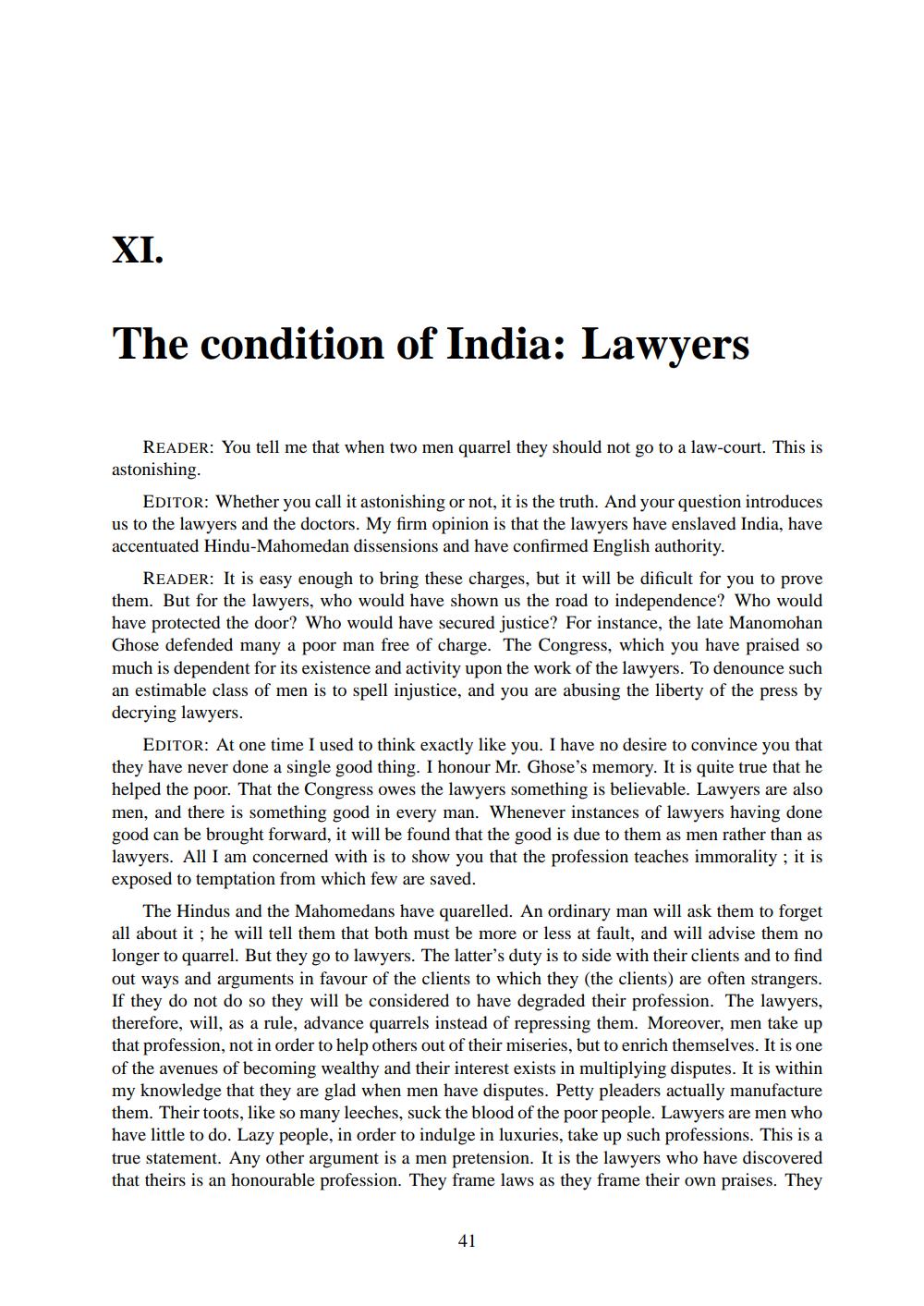________________
XI.
The condition of India: Lawyers
READER: You tell me that when two men quarrel they should not go to a law-court. This is astonishing.
EDITOR: Whether you call it astonishing or not, it is the truth. And your question introduces us to the lawyers and the doctors. My firm opinion is that the lawyers have enslaved India, have accentuated Hindu-Mahomedan dissensions and have confirmed English authority.
READER: It is easy enough to bring these charges, but it will be dificult for you to prove them. But for the lawyers, who would have shown us the road to independence? Who would have protected the door? Who would have secured justice? For instance, the late Manomohan Ghose defended many a poor man free of charge. The Congress, which you have praised so much is dependent for its existence and activity upon the work of the lawyers. To denounce such an estimable class of men is to spell injustice, and you are abusing the liberty of the press by decrying lawyers.
EDITOR: At one time I used to think exactly like you. I have no desire to convince you that they have never done a single good thing. I honour Mr. Ghose's memory. It is quite true that he helped the poor. That the Congress owes the lawyers something is believable. Lawyers are also men, and there is something good in every man. Whenever instances of lawyers having done good can be brought forward, it will be found that the good is due to them as men rather than as lawyers. All I am concerned with is to show you that the profession teaches immorality; it is exposed to temptation from which few are saved.
The Hindus and the Mahomedans have quarelled. An ordinary man will ask them to forget all about it; he will tell them that both must be more or less at fault, and will advise them no longer to quarrel. But they go to lawyers. The latter's duty is to side with their clients and to find out ways and arguments in favour of the clients to which they (the clients) are often strangers. If they do not do so they will be considered to have degraded their profession. The lawyers, therefore, will, as a rule, advance quarrels instead of repressing them. Moreover, men take up that profession, not in order to help others out of their miseries, but to enrich themselves. It is one of the avenues of becoming wealthy and their interest exists in multiplying disputes. It is within my knowledge that they are glad when men have disputes. Petty pleaders actually manufacture them. Their toots, like so many leeches, suck the blood of the poor people. Lawyers are men who have little to do. Lazy people, in order to indulge in luxuries, take up such professions. This is a true statement. Any other argument is a men pretension. It is the lawyers who have discovered that theirs is an honourable profession. They frame laws as they frame their own praises. They
41




